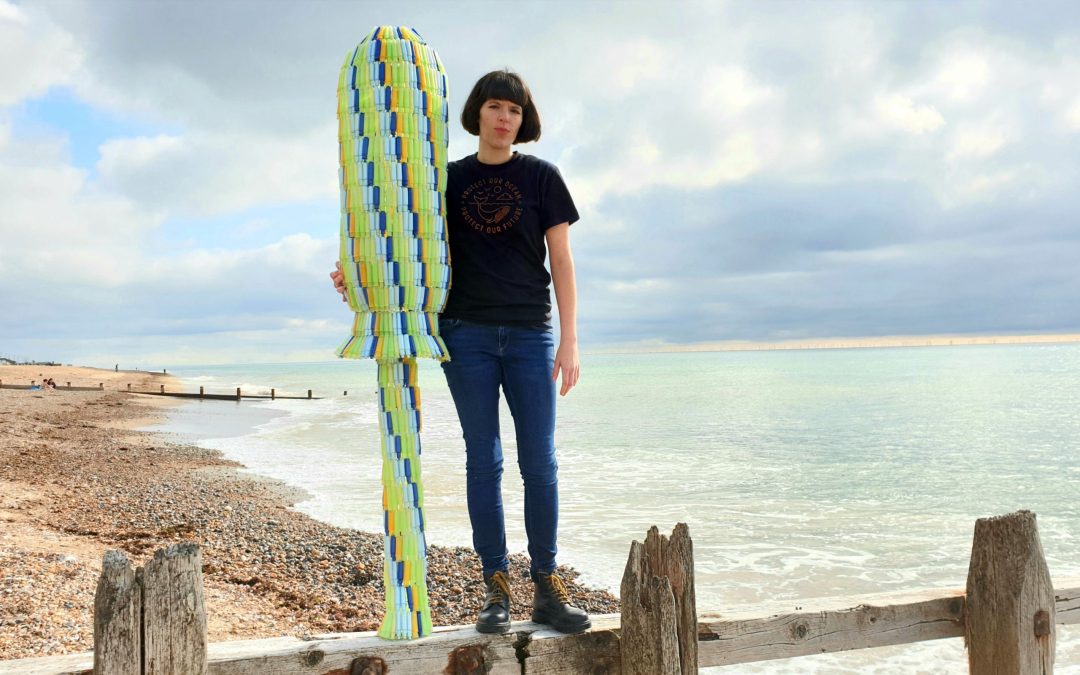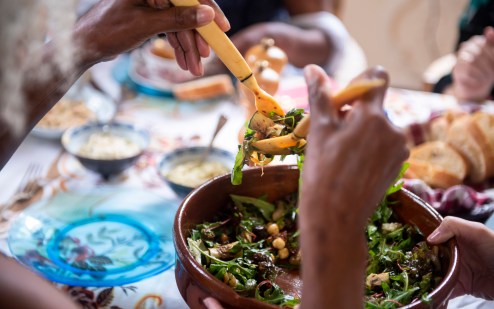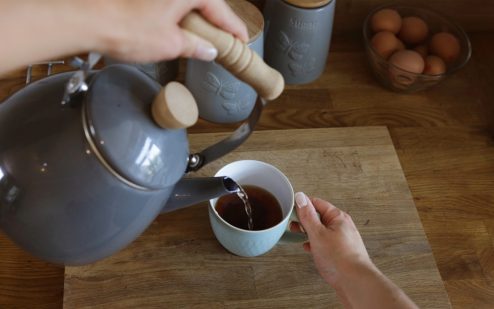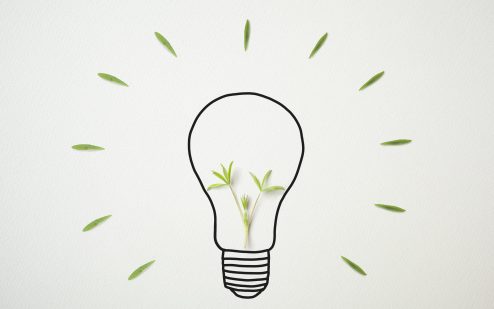Campaigning for plastic-free period products – what you can do
Ella Daish, an environmental activist who started the campaign to #EndPeriodPlastic, explains the problem with period plastic, the best plastic-free period products and what you can do to make your period more sustainable

Ellen Tout, Eco Living Editor: How did your campaigning work around period plastic all start? What motivated you?
Ella Daish: Before I started the campaign, I was working as a postal worker for Royal Mail. Whilst out on delivery, I noticed the amount of waste being disposed of each week increasing. This was just a few streets, but it made me think about how much we throw away on a national scale.
This prompted me to reflect on my own consumption and I began to make product switches. I felt positive about the steps I was taking, but then my period started, and I noticed, for the first time, the amount of plastic waste I was generating during just one menstrual cycle. Some online research revealed that conventional tampons and pads – the ones I had been using for many years – contain up to 90 per cent plastic. I was horrified.
I went into my local supermarket to get an alternative, but there was no choice, it was either plastic or plastic. This irritated me, because without a choice, how can we truly make a decision about what we buy? I switched to eco-friendly period products and thought someone else would probably do something about it. I kept going over it in my head; it just didn’t make sense, if small companies could make them without plastic, then so could the big brands.
It began to really frustrate me and I knew something had to change. I kept thinking ‘what can I as a postal worker really do about this?’ I felt powerless, but had to do something because if I didn’t then who would? The success of other online campaigns like Amika George’s #FreePeriods petition and Laura Coryton’s Tampon Tax petition compelled me to take a stand against period plastic by starting my own.
Ellen: Why is the issue of period plastic so important to you?
Ella: This issue is so important to me because the harmful environmental impacts these products are having are completely avoidable. Manufacturers tend to put the blame on consumers to avoid ownership of the problem. They have got the money and resources to bring about change at source and that is exactly what needs to happen.
Ellen: Can you summarise the problem with plastic period products?
Ella: The use of plastic in tampons and pads is totally unnecessary, as small eco-friendly brands have been making them without it since the 1980s. There is no excuse for manufacturers to continue pumping out single-use plastic period products.
Ellen: What are the alternatives to plastic period products?
Ella: There are plenty of alternative options out there to choose from when it comes to period products, such as eco-friendly tampons and pads, and reusables like menstrual cups, cloth pads, tampon applicators, and period pants. I’ve put together an A-Z list of all the eco-friendly brands that are available in the UK and where you can find them in-store and online. You can check it out here.
Also check out Psychologies top five plastic-free period products here.
Ellen: Can you explain what happens if we flush period products?
Ella: It is estimated that a whopping 1.5-2 billion period products are flushed down UK toilets each year! After they are flushed, they enter the sewerage system and if they aren’t intercepted at the water treatment works then they end up in our rivers, flow into the sea and wash up on our beaches. This contributes to ocean plastic pollution and, overtime, their plastic content breaks down into smaller pieces, known as micro-plastics and fibres. This poses a further threat to vital eco-systems where they can also enter the food chain.
Ellen: How long do plastic period products last?
Ella: Period products are made in their billions, used for four to eight hours, disposed of, and then take over 500 years to break down due to their high plastic content. That is over seven times the average lifetime of the person using them, meaning if Jane Austen had used them, they would still be on Earth today.
Ellen: How do you keep motivated when the issues facing us seem so huge?
Ella: There are times when I get overwhelmed with the issues that are facing us and what is happening across the globe, but who doesn’t? It is a natural reaction. Instead of thinking about what might happen if we don’t achieve something by a certain date, I focus on what I can do and the positive changes I can make.
Ellen: What is your current campaign and why specifically Tampax? What can people do to help?
Ella: Three UK retailers, Aldi, Sainsbury’s, and Superdrug have listened to the #EndPeriodPlastic campaign’s calls for change and responded by removing their own-brand plastic tampon applicators, classifying them as an ‘unnecessary use of plastic’. The campaign has been taking focused action on Tampax to ditch plastic applicators because despite being the UK’s period industry giant they have failed to make any changes since our meeting in May 2019.
Hundreds of people participated during the two weeks of action by sending letters and spreading the word online about why they want Tampax to take this step. Along with the letters sent by supporters, I wrote an open letter to Tampax, which has been signed by a coalition of over 40 groups and notable individuals like Caroline Lucas and Megan McCubbin.
To highlight the extent of the problem, I wanted to create something that Tampax could not ignore, a giant plastic tampon applicator. I asked people to send me any plastic tampon applicators they found polluting their local environment, beach, or waterway. The Tampax applicators collected from 15 different locations across the UK were turned into a giant tampon applicator. It is six feet tall and is made exclusively from 1,200 Tampax plastic tampon applicators.
You can help support the campaign by signing the petition and getting involved with the actions taken on decision makers. The more people that add their voice to the campaign, the bigger the impact. Starting conversations with those around you about the hidden plastic in period products is important. It has far-reaching impacts and when people find out, they tell other individuals about the issue. This flow of conversation creates a wave of awareness, action, and change. It is powerful!
Find out more about Ella here. Follow her work on Twitter here. And sign the plastic-free period products campaign here.
Follow Eco Living Editor @Ellen_Tout on Twitter and on Instagram follow Ellen @ellen_tout and for Ellen’s waste-free compleating food ideas, follow @compleatly_vegan.
Photo: Ella Daish.









